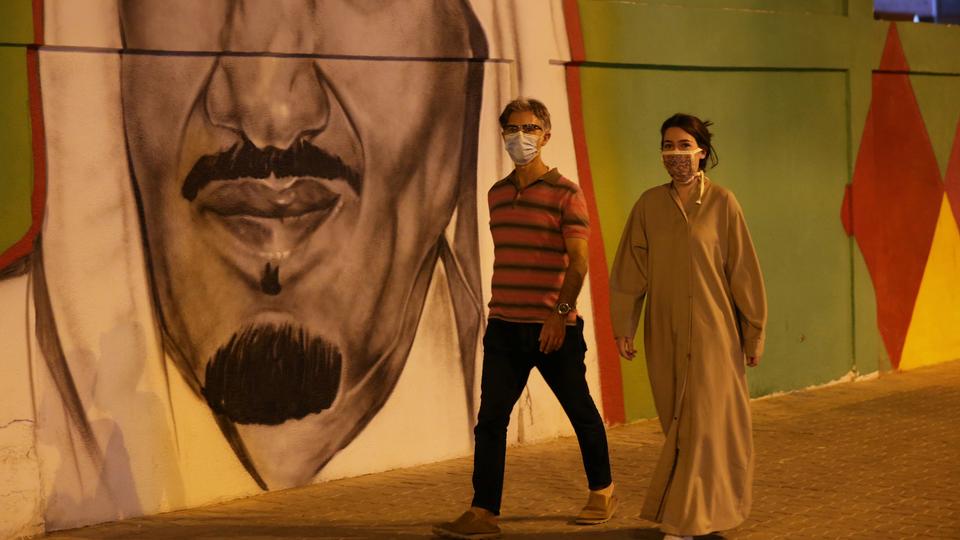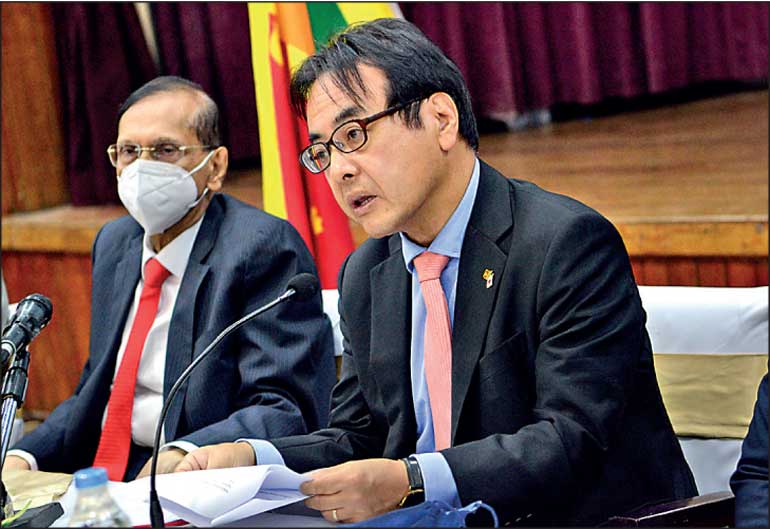Covid-19 has infected more than 313M people and killed over 5.5M worldwide. Here are some of the latest coronavirus-related developments:
Saudi reports highest daily new infections so far
Saudi Arabia has registered its highest daily number of new Covid-19 infections so far, health ministry data showed, breaking through 5,000 cases.
Cases in the kingdom, which has the Gulf’s largest population at around 35 million, have risen dramatically since the start of the year with the global spread of the Omicron variant.
The kingdom reported 5,362 new cases and two deaths, rising above the previous peak of daily infections in June 2020 of 4,919.
Mask wearing in public in Saudi Arabia has been compulsory since the start of the year.
Other Gulf Arab states have also seen infections surge in the past month, with Kuwait and Qatar also breaking through previous daily case records.
WHO: Global cases rose by more than 50%, deaths stable
The number of new coronavirus infections in the last week jumped by about 55 percent, although the number of deaths remained stable, the World Health Organization said in its latest pandemic report.
In the weekly report, the UN health agency said there were about 15 million new Covid-19 cases last week and more than 43,000 deaths.
Every world region reported a rise in Covid-19 cases except for Africa, where officials saw an 11 percent drop.
Last week, WHO noted a pandemic record high of 9.5 million new infections in a single week, calling it a “tsunami” of disease.
WHO said the extremely contagious Omicron variant continues to define the pandemic globally and is now crowding out the previously dominant Delta variant.
It said Omicron, which was first detected in southern Africa in late November, accounts for nearly 59 percent of all sequences shared with the largest publicly available global database of viruses.
Germany reports daily record of over 80,000 new cases
Germany has reported more than 80,000 new coronavirus cases in a day, a new record since the pandemic began two years ago.
The Robert Koch Institute, the country’s disease control agency, confirmed 80,430 new infections in the past 24 hours, and 384 coronavirus-related fatalities.
The recent surge was fueled by the more contagious Omicron variant, but most of those infections were mild, not requiring hospitalisation.
Authorities reported 17,139 new cases of the Omicron variant, up from 11,695 the day before.
Experts say the actual number of Omicron cases could be much higher, as the country sequences only a small proportion of positive tests.
Health departments have so far registered 50 Omicron-related fatalities, and confirmed that 1,120 people infected with Omicron were admitted to hospitals.
Austria’s daily infections hit record
Austria’s daily new coronavirus infections have risen to a new record of 18,427, as cases have been surging because of the spread of the extremely contagious Omicron variant.
Russia’s Omicron cases hit nearly 700, govt ponders new measures
Russia has so far recorded 698 cases of the Omicron coronavirus variant and will prepare new measures to combat the rise in cases by the end of the week, Deputy Prime Minister Tatiana Golikova said.
Omicron has pushed Covid-19 case figures to record highs in parts of western Europe and the United States, while cases in Russia have generally been declining from a peak of 41,335 registered in early November.
US govt to increase tests for schools by 10 million per month
The Biden administration has announced a new set of measures to keep schools open, including increasing access to Covid-19 tests, as the highly contagious Omicron variant spreads rapidly through the United States.
The United States reported 1.35 million new coronavirus infections on Monday, according to a Reuters tally, the highest daily total for any country in the world.
Omicron was estimated to account for 98.3 percent of total new coronavirus cases circulating in the country as of Jan. 8, the CDC said Tuesday.
The White House and top health officials defended the government’s response to the surge in cases and hospitalisations.
The gigantic wave of infections has forced Americans to put off traveling and shutter entertainment venues, and has disrupted plans for students and teachers to return to school and for workers to go back to the office.
Having been accused in recent weeks of focusing on vaccinations at the expense of testing, the Biden administration said it will increase the number of Covid-19 tests available to schools by 10 million per month.
The administration estimates this will help schools more than double the volume of testing compared to November 2021.
Hungary’s daily tally of new cases jumps to 7,883 as Omicron spreads
Hungary’s daily tally of new Covid-19 cases have jumped to 7,883 from 5,270 reported a week earlier, but the number of patients treated in hospital declined over the week, the government said.
The government said 29 percent of the new infections were caused by the new Omicron variant, but some private labs have reported much higher figures.
In Hungary, a country of 10 million, 40,083 people have died of Covid-19. There are 2,758 people coronavirus patients in hospital now, including 257 on ventilators.
Frence says too early to say if current wave has peaked
French Health Minister Olivier Veran has said it was too early to say if the current, Omicron-fuelled wave of the new coronavirus had peaked in the country, which is currently reporting record numbers of daily new cases.
“We still need a bit of time to work out whether or not we are near a current Covid peak, ” Veran told France info radio, adding that the more dangerous Delta variant was declining in France.
French health authorities on Tuesday reported 368,149 new coronavirus cases, the highest single-day tally of the pandemic. And the seven-day moving average of new cases, which smoothes out reporting irregularities, rose to a record level of 283,394.
Tokyo, Osaka record most cases in 4 months as Omicron spreads
Japan has recorded a surge in new coronavirus cases, with infections reaching four-month highs in the major metropolitan areas of Tokyo and Osaka as the Omicron variant spreads.
New cases totalled 2,198 in the capital of Tokyo, while the western prefecture of Osaka recorded 1,711, nearly tripling from the day before. Those marked the highest levels since early September.
Covid-19 cases across Japan will exceed 10,000, according to a tally by broadcaster TBS.
That tally would be the highest number of infections in Japan in a single day since September 9.
South Korea authorises Novavax vaccine, imports Pfizer pills
Korea is turning to additional pharmaceutical tools as it looks to pre-empt a surge of Covid-19 Omicron infections, authorising the use of Novavax Inc’s vaccine and preparing to distribute the first of Pfizer’s antiviral pills.
At least 21,000 of Pfizer’s antiviral pills, called Paxlovid, will arrive in South Korea on Thursday, with another 10,000 more expected to arrive by the end of the month, the health ministry said.
The pills, which were authorised for emergency use in December, will begin being used in treatments for more than 1,000 people per day starting on Friday, the ministry added
Omicron may drop rapidly in US and UK
Scientists are seeing signals that Covid-19’s alarming omicron wave may have peaked in Britain and is about to do the same in the US, at which point cases may start dropping off dramatically.
The reason: The variant has proved so wildly contagious that it may already be running out of people to infect, just a month and a half after it was first detected in South Africa.
At the same time, experts warn that much is still uncertain about how the next phase of the pandemic might unfold. The plateauing or ebbing in the two countries is not happening everywhere at the same time or at the same pace.
And weeks or months of misery still lie ahead for patients and overwhelmed hospitals even if the drop-off comes to pass.
Spain sees nearly 500 Covid deaths
Spain has recorded its highest number of coronavirus-related deaths since March with 247 in the last 24 hours, the Health Ministry has said.
The country has recorded nearly 135,000 daily cases, bringing the total to 7.59 million, while the overall death toll hit 90,383.
EU regulator says boosters give protection against Omicron
The European Medicines Agency (EMA) has said that Covid-19 vaccines remained effective against hospitalisation and severe illness from the new omicron variant of the coronavirus, according to preliminary studies.
According to the EMA’s scientific opinion, inoculation, especially receiving a booster shot, remained highly effective against developing severe disease.
At the same time, the EMA raised concerns on the necessity of regularly repeating booster doses due to the omicron variant.
Canada’s Quebec to tax unvaccinated people
The Canadian province of Quebec, struggling to control the Omicron variant, will impose a new health tax in the coming weeks on those who are not vaccinated against Covid-19.
The 10 percent of Quebecois who have not yet received any vaccine doses must not “harm” the 90 percent who have, said Quebec Premier Francois Legault.
The Quebec premier explained that these 10 percent of unvaccinated adults represent 50 percent of people in intensive care, calling it a “shocking” situation.
Anthony Fauci: US on ‘threshold’ of living with Covid
Despite soaring cases and record-high Covid-19 hospitalisations, the United States is approaching the “threshold” of transitioning to living with the coronavirus as a manageable disease, Anthony Fauci has said.
Speaking to the Center for Strategic and International Studies, the top US scientist said eliminating Covid was unrealistic and that “Omicron, with its extraordinary, unprecedented degree of efficiency of transmissibility, will ultimately find just about everybody.”
Official data showed there are currently 145,982 Covid hospitalisations, even though a significant percent are thought to be hospitalised “with” the disease rather than because of it.
US airlines say China forced them to cancel flights
US airlines say China has blocked more than a dozen recent and future flights from entering the country, which has been tightening already-strict Covid-19 travel restrictions.
China ordered the cancellations after some passengers tested positive for Covid-19 on flights that arrived in China in late December, according to industry officials.
American Airlines said that six of its flights from Dallas-Fort Worth to Shanghai in late January and early February have been canceled.
United Airlines said it was forced to cancel six flights from San Francisco to Shanghai later this month.
Source: TRTWorld and agencies

 World6 days ago
World6 days ago
 World6 days ago
World6 days ago
 News4 days ago
News4 days ago
 News7 days ago
News7 days ago
 News4 days ago
News4 days ago
 News5 days ago
News5 days ago
 News4 days ago
News4 days ago
 News3 days ago
News3 days ago


















